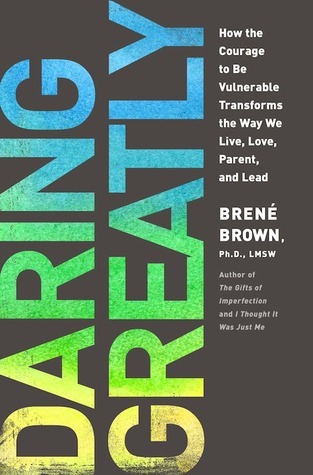
Braving the Wilderness
Book Description
Step into the wilderness of the human experience, where vulnerability meets courage in a fierce battle for belonging. Brené Brown illuminates the raw truths of modern life, challenging the status quo and unveiling the strength found in authenticity. With each page, readers are drawn into the heart-pounding struggle of forging connections amidst societal pressures and self-doubt. This is a journey of bravery, where solitude transforms into empowerment and isolation gives way to deep, meaningful relationships. Are you ready to brave the wilderness and discover the extraordinary power of being your true self?
Quick Book Summary
"Braving the Wilderness" by Brené Brown explores the tension between our deep-rooted need to belong and the courage it takes to stand alone in our authenticity. Brown combines research, personal stories, and practical wisdom to examine why genuine belonging requires us to brave uncertainty, vulnerability, and isolation. She challenges cultural and social norms around fitting in, emphasizing the importance of integrity, self-acceptance, and compassion. By defining belonging as not about fitting in but about remaining true to oneself, Brown guides readers through the process of developing resilience and courage. This book provides tools and inspiration for forging genuine connections, building community, and finding strength in both vulnerability and solitude.
Summary of Key Ideas
Table of Contents
The Meaning of True Belonging
Brené Brown redefines what it means to belong, arguing that true belonging starts with self-acceptance and authenticity instead of seeking approval from others or conforming to societal expectations. She differentiates between fitting in and belonging, emphasizing that fitting in often requires us to change ourselves, while true belonging is about courageously being ourselves even when that means standing alone. Brown uses personal anecdotes and research to show how the search for acceptance can actually lead to loneliness if we neglect our own values and identity.
Standing Alone with Courage
To brave the wilderness, Brown contends that we must be willing to stand alone and dissent when necessary. She suggests that the willingness to stand apart is the foundation of meaningful connection. This courage to be different is bolstered by a strong sense of self-worth and an understanding of one’s core values. Brown shares stories of people who risked ostracism for the sake of authenticity and explains how such integrity leads to deeper, more authentic relationships both with ourselves and others.
The Role of Vulnerability in Connection
A significant thread in Brown’s work is the role of vulnerability in forging connections. She explains that showing up as we truly are, with all our imperfections, is fundamental to creating genuine ties with others. Rather than putting on a façade or armor, embracing vulnerability opens the door to empathy and mutual understanding. Brown provides practical strategies for cultivating this openness, such as being honest about our emotions and reframing rejection as an opportunity for growth.
Embracing Civility and Compassion
Another key theme is the practice of civility and compassion in increasingly polarized times. Brown argues that empathy, humility, and the willingness to listen without judgment are essential for bridging divides and building inclusive communities. She promotes the idea that brave leadership entails “strong back, soft front, wild heart”—meaning being both resilient and tender at the same time. Brown shows how these qualities help us move beyond us-versus-them thinking to see ourselves and others more fully.
Transforming Loneliness into Empowerment
Finally, Brown discusses how loneliness can be transformed into empowerment. She acknowledges the pain that comes with isolation but reframes solitude as a powerful opportunity for self-discovery and growth. By braving the wilderness, individuals can find a deeper sense of purpose and belonging that is not contingent on external validation. The book concludes with a call to action to embrace one’s wild heart, champion connection over division, and step courageously into the wilderness of life as one’s truest self.
Download This Summary
Get a free PDF of this summary instantly — no email required.





